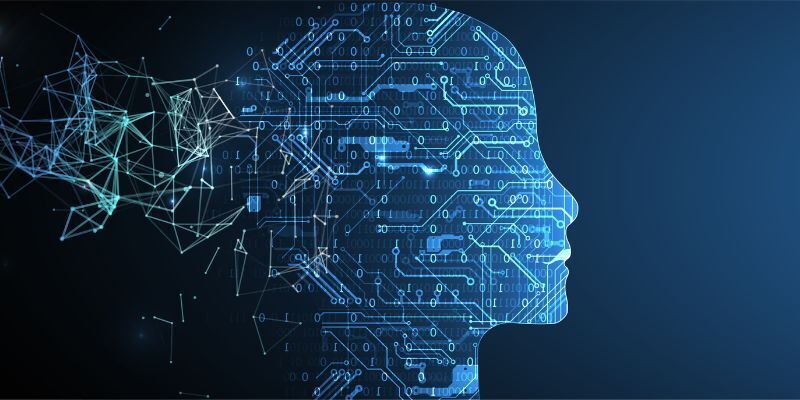- Published
- Thursday 10 April 2025
Can the application of Artificial Intelligence in healthcare administrative tasks reduce financial outgoings, while increasing job satisfaction for professionals?

According to Insider Intelligence, 30% of healthcare costs are associated with administrative tasks in the form of time-consuming and outdated practices.
At the University of Leeds, Professor Dan Blackman, an Interventional Cardiologist, is collaborating with Computer Scientist, Professor Alex Frangi. They’re using machine learning to automate the building of 3D digital twins – or virtual patients – to execute patient-friendly and animal-sparing virtual trials.
It’s a process that can potentially save time and cost, to bring new medical devices to market.
Artificial Intelligence MSc
Visit our course page to find out more about studying Artificial Intelligence.
What is machine learning?
Machine learning is concerned with non-linear predictive models inferred from data and applied in a wide range of fields, particularly artificial intelligence. This enables a machine to generate powerful predictive models without hand crafting by humans.
How is machine learning used in healthcare by the University of Leeds?
In an ongoing research project funded by the Royal Academy of Engineering and conducted in the University of Leeds School of Computing (part of the Faculty of Engineering and Physical Sciences), machine learning in healthcare is being used to programme technologies to creating virtual trials.
Using anonymised patient data and AI-enabled modelling and simulation techniques, the project can evaluate the safety and efficacy of new medical devices by virtually implanting them on a population of virtual patients (or digital twins).
Although these virtual trials will not fully replace the need for testing medical devices in real human subjects, they can help to reduce, refine and partially replace the need for costly bench testing and spare human subjects or animal testing.
In 2021, the team at the University of Leeds found their virtual trial to reproduce the findings of three clinical trials and generated new insights at a fraction of the time and cost:
We can test different treatment scenarios on the same anatomy and physiology of virtual individuals. We can assess the performance in physiological regimes that are extreme but plausible thus assessing their safety. And that’s something which is not even possible to do with conventional trials due to ethical or practical considerations.
What are the benefits of virtual trials?
Virtual trials are designed to speed up the time it takes to perform a procedure, and reduce the money required to identify the right devices and humans to test.
According to Professor Alex Frangi, the cost savings associated with virtual trails were huge. Typically, each of the studies “took between six and eight years to be undertaken at a cost of around £20-30 million for each of them” while using machine learning and computational study “took around three months” and a cost “less than £20,000”.
What impact will the application of machine learning in healthcare have in future?
While automating tasks and analysing big datasets in the form of patient information can lower costs and improve the healthcare industry, the main barrier to entry is the time it takes for AI to be developed and the investment in these technologies that are required.
However, more promisingly, Forbes reports the global AI in healthcare market size to grow from $5 billion in 2020 to $45.2 billion by 2026. As these investments increase, so too will the pace of technological developments and the accessibility of these technologies to healthcare providers.
Professor Alex Frangi also claims that while “AI 1.0 is the ability to automate tasks that otherwise could be very boring, time-consuming or repetitive”, AI 2.0 will take the world and in particular the healthcare profession to the next level by “incorporating prior information in a much more intimate manner with the data, so AI is not just data-driven but it’s also knowledge-driven.”
Watch How AI can make healthcare better on YouTube.
Related blogs
- 3 ways to improve the ethics of artificial intelligence
- 5 ways AI is changing business
- Data Science vs Machine Learning: what’s the difference?